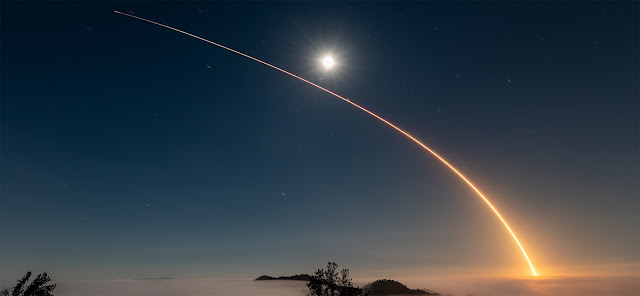Is the "reusability changes everything" idea catching on?
European Space Agency Commits to Two Reusability Programs
The ESA has selected four European companies to work on two new programs aimed at reusability.
On 9 October, ESA held its Future Space Transportation Award Ceremony in Paris. During the event, the agency announced the four awardees under two initiatives focused on the development of reusable rocket technology: the Technologies for High-thrust Reusable Space Transportation (THRUST!) project and the Boosters for European Space Transportation (BEST!) project.
Gee...THRUST! and BEST! sure sound like serious names. I have a personal bias against the excessive use of exclamation points, but that's just me.
The THRUST! initiative aims to push forward the development of European liquid propulsion systems, and Rocket Factory Augsburg and The Exploration Company were selected to develop projects under this initiative. The Exploration Company is already working on a high thrust engine in the 200 tons of thrust class, called the Typhoon, while Rocket Factory Augsburg has been working on considerably smaller engines (more like 10 tons) so it's a bigger leap for them.
The BEST! project was launched to stimulate the development of future reusable rocket first stages or boosters; ArianeGroup and Isar Aerospace were chosen for this. Europe has a number of initiatives now aimed at developing a reusable rocket, but it seems doubtful that a European rocket will launch to orbit in the 2020s and successfully return to Earth.
UK Startup Aiming at Fully Reusable Rocket
SpaceNews is reporting that Astron Systems is developing a fully reusable two-stage rocket that will be able to transport about 360 kilograms to low-Earth orbit. That payload, around 790 pounds, puts it in the small payload class, but still bigger payloads to LEO than Rocket Lab's Electron, which advertises 300 kg or 660 lb. Rocketlab is progressing in the reusability direction, but hasn't achieved the kind of "fully reusable" level Astron appears to be aiming for.
“The main driver of cost and time for putting stuff into space is production and assembly,” Eddie Brown, Astron Systems founder and CEO, told SpaceNews. “If you can spread out that cost over many flights, the per-flight cost can be a lot lower. And you can ramp up to a higher cadence and be much more responsive to customer schedules.”
Astron Systems, founded in 2021 and located at the Harwell Science Campus in England, is one of 12 startups in the Fall 2024 class of the TechStars Space Accelerator. Prior to TechStars, the European Space Agency Business Incubator Centre United Kingdom supported Astron Systems’ early hardware development.
Founder Eddie Brown noted, “If you want a small rocket engine to use for 50, 100 flights today, that’s not something you could buy off the shelf.” He said Astron is driving towards a methalox engine: methane and oxygen, like SpaceX's Raptors and Blue Origin's BE-3 and BE-4 engines, to name a few. Their twist is the desire to use biomethane "to reduce its environmental impact."
Artist's concept of a reusable booster after landing, from the French space agency CNES.





















